
BEIJING, April 14 (Xinhua) -- The Western media have been fanning fears of Syria's chemical weapons since last year, and the most recent talk is that British scientists have found evidence of Syrian chemical attack.
Although both sides of the Syria conflict have accused the other of using chemical weapons, Washington chose only to hold the Syrian government accountable, warning it that resorting to such weapons would be "a red line" that incurs military intervention.
To long-time global affairs observers, all the talk about the chemical weapon sounds deja vu. More than a decade ago, the United States and some other Western powers claimed that Iraq's Saddam Hussein amassed weapons of mass destruction, or the WMDs, and eventually used it as a pretext to launch the Iraq war.
But long after Saddam is gone, the WMDs are still nowhere to find.
More recently, during the West's 2011 military intervention in Libya, their media outlets repeated speculations that Muammar Gaddafi stockpiled WMDs in his hometown Sirte.
But in fact, until the former strongman was killed, he never came up with any WMDs.
Although in both cases no evidence has ever been found about the use of WMDs, the West's political aim was achieved -- a large portion of the Western public was made to believe, at least at the moment, that military intervention is justified, and both Iraqi and Libyan regimes were toppled.
Since the Cold War, the West has played the same old trick repeatedly and is skilled in manipulating the public opinion on such issues.
Meanwhile, the Western narrative on the Syria WMD issue, armed by its dominance in global news circles, made alternative and sober-headed voices hardly heard.
Even Damascus repeatedly stressed "even if we have such weapons we will not use them", the Western media didn't bother to take much notice.
It is self-evident that in today's world, the domestic use of WMDs is political suicide. Neither Saddam nor Gaddafi dared to take such attempt in their last days. The Syrian government has nothing to gain but all to loose if it uses the WMDs.
While the global community has a solemn obligation to ensure no WMDs will be used in Syria, the practice of stoking such fears without solid evidence does more harm than good.
More worrisome is the use of WMDs hype as part of Western strategy in the global hotspot zones such as Middle East and Korean Peninsula, which often sets the stage for eventual intervention.
While hopes for peace are far from being diminished in Syria, playing up the WMDs fears risks losing the real focus and arouses the suspicion of the real motive behind the hype.
We recommend:

World Pillow Fight Day marked in Washington
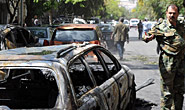
Multiple mortar shells hit Damascus

Prince William, Kate love sports
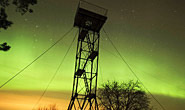
Aurora shines in Estonia
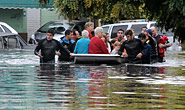
Floods kill 46 in Argentina

The world in photos

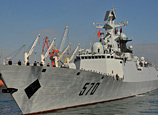


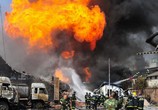
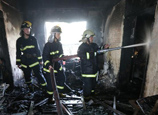










 Bird flu takes toll on poultry industry
Bird flu takes toll on poultry industry


![]()
